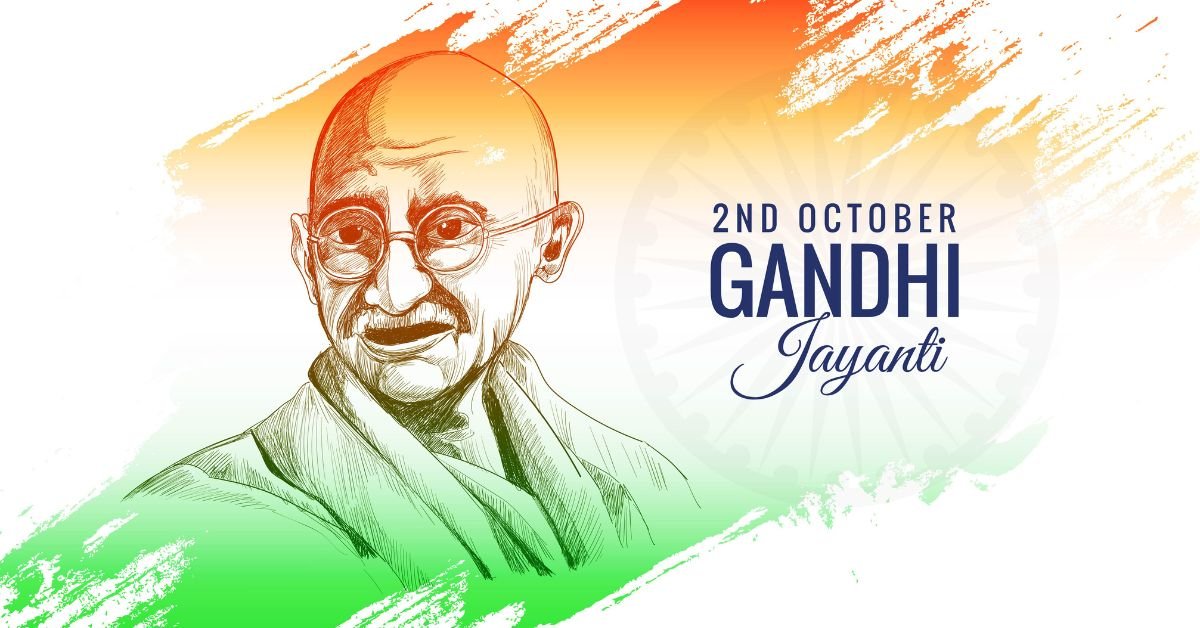Gandhi Jayanti, observed on October 2nd, is a national holiday in India that marks the birth anniversary of Mahatma Gandhi, one of the most revered leaders in modern history. Known as the “Father of the Nation,” Gandhi’s philosophy of non-violence (Ahimsa) and truth (Satyagraha) had a profound impact not only in India’s struggle for independence but also on civil rights movements across the globe. In this blog, we will explore the history of Gandhi Jayanti, how to celebrate this day, some lesser-known facts, and much more.
History of Gandhi Jayanti
Gandhi Jayanti commemorates the birth of Mohandas Karamchand Gandhi, who was born on October 2, 1869, in Porbandar, Gujarat. His principles of non-violent resistance led India to independence from British rule in 1947. Through initiatives like the Salt March and the Quit India Movement, Gandhi championed the cause of India’s self-rule without resorting to violent means. His contributions to humanity, particularly his belief in civil disobedience and peaceful protest, are recognized worldwide.
The United Nations, recognizing his influence, declared October 2nd as the International Day of Non-Violence in 2007. This further emphasizes the global importance of Gandhi’s message of peace and non-violence.
Activities – How to Celebrate Gandhi Jayanti
- Attend or Watch Memorial Services: Across India, especially at Raj Ghat (Gandhi’s memorial in Delhi), people gather to pay tribute. Memorial services include prayer meetings, singing of Gandhi’s favorite devotional songs, and readings of his works.
- Cleanliness Drives: As part of the Swachh Bharat Abhiyan (Clean India Mission), initiated by the Indian government, cleanliness drives are often organized to promote hygiene and sanitation – a cause close to Gandhi’s heart.
- Non-Violence Workshops and Seminars: Educational institutions and organizations conduct seminars and workshops discussing Gandhi’s principles of non-violence and their relevance in today’s world.
- Community Service: Volunteer work is a popular way to honor Gandhi’s values. Many people participate in activities such as feeding the poor, helping the elderly, or contributing to social causes.
- Social Media Campaigns: Sharing Gandhi’s quotes, life lessons, and videos across social media platforms is a great way to spread awareness of his philosophies.
Why We Love Gandhi Jayanti
- Inspiration for Non-Violence: Gandhi’s commitment to peaceful resistance serves as a reminder that change can be achieved without violence.
- Values of Simplicity: Gandhi was a staunch advocate of simple living, self-sufficiency, and ethical values, all of which resonate with people striving for a minimalistic lifestyle today.
- Global Impact: Gandhi’s legacy goes beyond India. His teachings influenced global leaders like Martin Luther King Jr. and Nelson Mandela, who used his methods to combat injustice in their own countries.
Lesser-Known Facts About Mahatma Gandhi
- Gandhi’s First Hunger Strike: He performed his first hunger strike in 1913 in South Africa, where he fought against the mistreatment of Indian immigrants.
- Nobel Peace Prize: Despite being nominated five times, Gandhi never won the Nobel Peace Prize. The Nobel Committee later regretted this omission.
- Vegetarianism and Fasting: Gandhi was a staunch vegetarian and often fasted as a means of protest, which he believed helped him grow spiritually and cleanse his body.
- Influence on Global Movements: His philosophy directly inspired civil rights movements in the U.S. and anti-apartheid protests in South Africa.
Ways to Incorporate Gandhi’s Teachings Into Daily Life
- Practice Non-Violence: Beyond physical non-violence, embrace emotional and verbal non-violence by being kind and understanding to others.
- Simplicity: Gandhi lived a simple life, wearing basic clothing and abstaining from material excess. Incorporating minimalism into your lifestyle can lead to more peace of mind and satisfaction.
- Self-Sufficiency: Learn to depend less on consumerism and more on self-reliance. Whether through growing your own food or creating homemade products, this principle can be both rewarding and environmentally friendly.
- Truthfulness: Gandhi’s life was rooted in honesty and transparency. Making truthfulness a daily practice can enhance personal relationships and build trust in professional settings.
Conclusion
Gandhi Jayanti is a day not just to remember a great leader but to reflect on the values of non-violence, truth, and simplicity that Mahatma Gandhi lived by. As we celebrate his life, let’s strive to incorporate these teachings into our own lives to create a more just and peaceful world. Whether through community service, personal reflection, or spreading awareness, we can all find ways to honor his legacy.










Add a comment